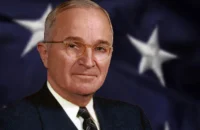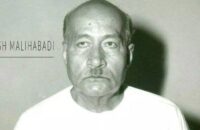By Khaled Ahmed
Islamabad’s central place of worship, the Lal Masjid (Red Mosque), has become the symbol of the contraction of the state in Pakistan. It defies the state and threatens to “update” itself to suit the murderous extremism of al-Qaeda and the Islamic State.
The lowest point in the state’s relationship with Lal Masjid was reached when its chief priest Maulana Abdul Aziz refused to condemn the slaughter of 132 children by the Taliban in Peshawar’s Army Public School in December 2014. Despite civil society protest and cases against Aziz, no action was taken. He had dared the state in 2007 too, and started attacking the capital selectively, which the government of Pervez Musharraf suffered silently — till Aziz attacked a Chinese-run massage parlour.
The Red Mosque was attacked by a commando force on July 11, 2007. Aziz’s brother was killed, but the upshot was that al-Qaeda wiped out the commando unit later and announced the formation of the Tehreek-e-Taliban Pakistan. Musharraf was deposed and faces a trial today for treason, which must be the most outrageous irony in the history of Pakistan — a former army chief is seen as a traitor while a terrorist cleric rules the capital city de facto. Today, Interior Minister Chaudhry Nisar Ali Khan says he can’t proceed against Aziz because “there is nothing culpable in what he has been doing”.
Pakistan swallowed much more than this by allowing impunity to Lal Masjid: It ignored the kidnapping of seven Chinese nationals and allowed the Uyghur rebels active inside the seminary to target the Chinese in Islamabad. Andrew Small, in his book The China-Pakistan Axis: Asia’s New Geopolitics (2015), tells the story few in Pakistan know. The strategic threshold was crossed by Aziz when he grabbed the Chinese, and he was finally confronted because Beijing had pushed Islamabad. Beijing was forced to react because an assertive section of Chinese society had taken the incident as “a test of the Communist Party’s backbone”.
Some critics sent “mocking packages of calcium pills” to the Chinese foreign office. The Chinese ambassador in Islamabad, Luo Zhaohui, pursued the matter with great determination. An expert on the region, Luo got around unlike the average Chinese diplomat, and approached the “influentials” who could help. He was soon talking on the phone to Lal Masjid.
The state reached for its Taliban-friendly influentials and made them intercede with Aziz. The intercession failed and the bearded elite of the faith withdrew in puzzlement, little knowing Lal Masjid was heeding a far more important message from al-Qaeda chief Ayman al-Zawahiri:
“This crime can only be washed away by repentance or blood… If you do not retaliate… Musharraf will not spare any of you. Your salvation is only through jihad”. At one point, Aziz and his brother Ghazi seemed to relent, allowing Luo to talk to the hostages and promised their release. But nothing materialised. Then the marathon five-hour telephone negotiation began, with Musharraf himself interceding, while the deputy commissioner and the senior superintendent of police in Islamabad begged and pledged “corrective action” against “mixed-sex massage parlours”.
According to Small, the pledge clinched the deal. The Chinese prisoners were released, with Ghazi announcing: “We released them in view of Pakistan-China friendship. After receiving a number of complaints regarding ‘sex business’, our students and people… took action that should have been taken by the government. We greatly respect Pakistan-China friendship but it doesn’t mean that foreign women can come here and indulge in such vulgar activities.”
The Chinese women came out of the seminary wearing burqas!
Small observes: “Word leaked out that… China was attributing the instigation of the kidnappings to the influence of militants from China’s Uighur minority at Lal Masjid”. What the Chinese knew was news to Pakistan, so out-of-bounds was the Lal Masjid set-up. After Operation Silence, foreign and local warriors were found among the dead. Of the dead, 12 were Uyghurs.
Under General Raheel Sharif, Pakistan has taken steps against terrorists but the battle for its internal sovereignty is not over. Lal Masjid remains the symbol of this difficult transition when the minister in charge of security has to say that he can do nothing about it.



























